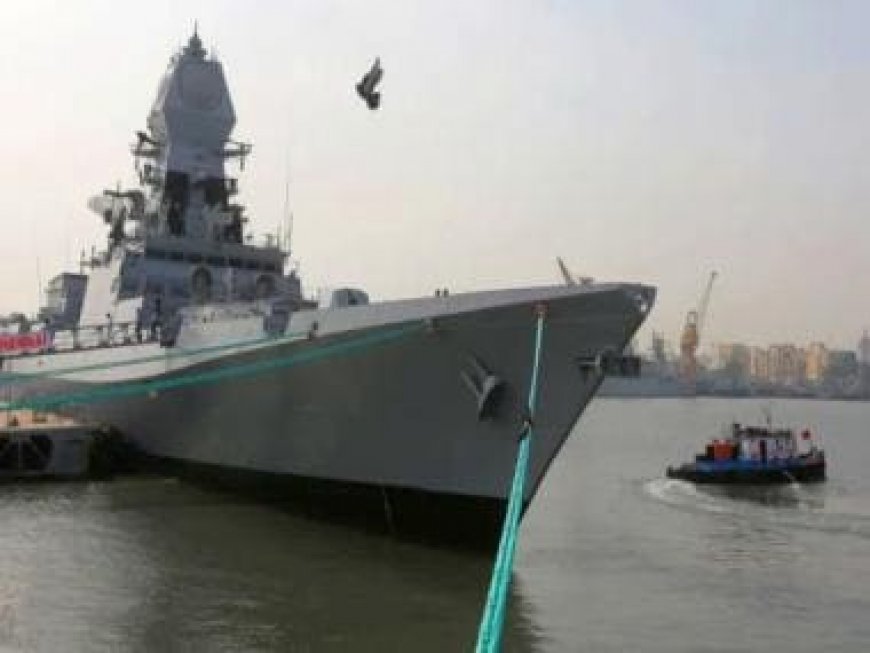MV Lila Norfolk hijacking: How the Navy comes to the rescue of distressed ships in Arabian Sea
MV Lila Norfolk hijacking: How the Navy comes to the rescue of distressed ships in Arabian Sea

A maritime crisis has unfolded in the Arabian Sea, prompting the Indian Navy to take quick action. Shortly after the Navy received information that a Liberia-flagged bulk carrier was hijacked near Somalia’s coast in the Arabian Sea, the maritime force has pressed into action, launching an operation to secure the vessel.
Earlier too, the Indian Navy had secured a vessel after it was hijacked in the Arabian Sea.
In fact, in light of the rising incidents of attacks on merchant vessels transitioning through the Arabian Sea, the Indian Navy had already enhanced maritime surveillance efforts.
We take a look at how the Navy has become a kind of a saviour on the high seas in the recent past.
Navy responds to MV Lila Norfolk hijacking
On Friday morning, the Indian Navy said that it was diverting and deploying INS Chennai towards MV Lila Norfolk, a Liberian-flagged bulk carrier with about 15 Indian crew members, after it had received information about its hijacking.
Reports say that the vessel had sent a message on the United Kingdom Maritime Trade Operations portal saying five to six unknown armed personnel had boarded on Thursday evening near Somalia’s coast.
On receiving the news early this morning (5 January), the Indian Navy’s aircraft managed to overfly the hijacked ship and establish contact, successfully verifying the crew’s safety. Simultaneously, the Navy also diverted INS Chennai to assist in the operation. “Naval aircraft continues to monitor movement and INS Chennai is closing the vessel to render assistance,” it said.
According to a report in The Print, the crew members are inside the safety compartment, which has not yet been breached.
As of now, no group has claimed responsibility for the assault. There have been growing concerns about shipping in the region following attacks by Yemeni Houthi rebels.
Navy offers assistance after hijacking of MV Ruen
Earlier in mid-December too, the Indian Navy had rushed to aid a hijacked ship in the Arabian Sea.
On December 14 2023, the Malta-flagged vessel MV Ruen, with 18 on board, had been hijacked, with the ship’s crew indicating in its SOS call that six unknown pirates had illegally boarded the Malta-flagged vessel, managed by Bulgaria’s Navigation Maritime Bulgare.

On receiving the call, the Indian Navy diverted its Naval Maritime Patrol aircraft undertaking surveillance in the area and its warship on anti-piracy patrol in the Gulf Aden to locate and assist MV Ruen. And on 18 December, one of the sailors – who had sustained a bullet injury to his shoulder during the piracy incident was moved by the Navy to INS Kochi for medical assistance.
The Indian Navy had negotiated with the pirates and secured the release of the injured crew, who was given first-aid treatment on INS Kochi. Since he needed urgent medical attention, which was beyond the scope of the Indian warship, he was transferred to a port in Oman for specialist treatment.
According to the New Indian Express, MV Ruen continues to remain docked off the Somalia coast.
Not just hijackings
Apart from the recent hijackings, the Indian Navy has also provided assistance in cases of drone attacks.
On 23 December, MV Chem Pluto – a chemical/ oil tanker with a crew of 21 Indians and a Vietnamese – was hit by a drone in the Arabian Sea while en route to New Mangalore port. The Navy had then dispatched a P8I maritime patrol aircraft and a warship, and the Coast Guard sent an offshore patrol vessel and a Dornier maritime surveillance aircraft to assist the Liberian-flagged commercial ship.

The Indian Navy after studying the area of attack and debris found on the ship pointed to a drone attack, which was also corroborated by the US Pentagon. A Pentagon spokesperson had claimed that the MV Chem Pluto was hit “a one-way attack drone fired from Iran”.
And a day after the MV Chem Pluto incident, a Gabon-flagged commercial oil tanker, MV Sai Baba, on its way to India with 25 crew members, all of them Indians, also came under drone attack in the southern Red Sea.
In light of both these incidents, the Indian Navy then deployed P-8I long-range patrol aircraft for surveillance. Also, warships INS Mormugao, INS Kochi, and INS Kolkata were stationed in the region to maintain a “deterrent presence”.
Securing the high seas
The Indian Navy has reiterated its commitment to securing the high seas. In a statement earlier, it said, “It remains committed to ensuring [the] safety of merchant shipping in the region along with international partners and friendly foreign countries”.
The force has also substantially enhanced maritime surveillance efforts in Central and North Arabian Sea. In late December, the Navy said, “Task Groups comprising destroyers and frigates have been deployed to undertake maritime security operations and render assistance to merchant vessels in case of any incident. Aerial surveillance by long-range maritime patrol aircraft and Remotely Piloted Aircraft (RPA) has been enhanced to have a complete maritime domain awareness.”
Also read: Vantage | How escalating Red Sea crisis threatens vital Indian trade routes
In recent times, the seas have become dangerous owing to a spate of attacks by Houthi rebels, who are opposed to Israel’s military campaign in Gaza. For India, these attacks in the Arabian Sea and Rea Sea are particularly worrying, as India heavily relies on fuel shipments from the West Asia region, particularly from Saudi Arabia and Iraq. Any disruption in this route can be problematic for India.
It is uncertain if the attacks will cease anytime soon, but one thing is certain: The Indian Navy is on guard, ready to protect the waters.
With inputs from agencies
What's Your Reaction?

























































